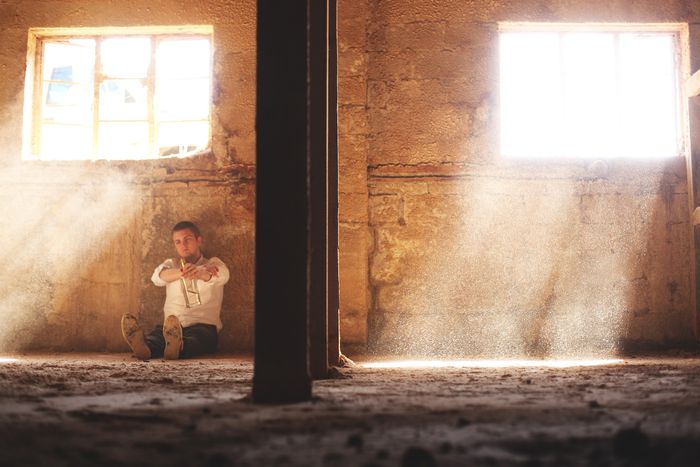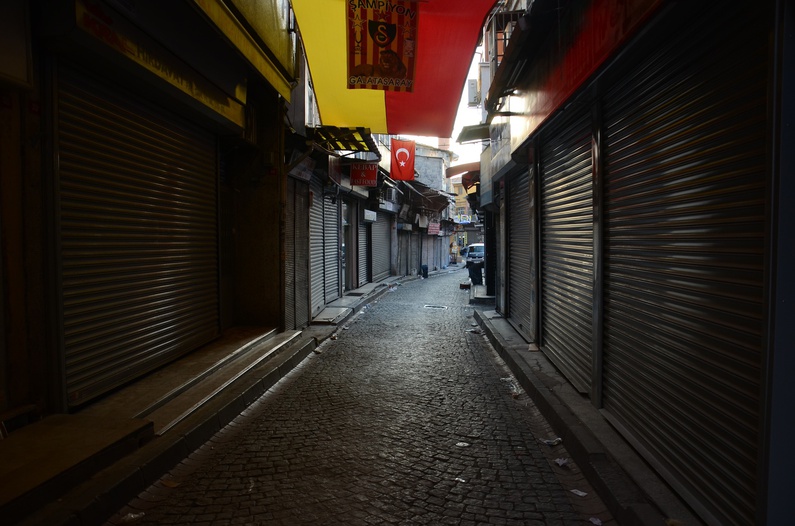
Attacks in Istanbul: The singularity of evil
Published on
Translation by:
Monica BibersonOn Saturday, following Sultanahmet on the 12th of January, a fresh attack struck another of Istanbul’s lifelines, Taksim. This time it was the very heart of the city that was targeted. A personal account.
Shortly before last weekend’s attack, something had already changed in Istanbul. Since Thursday, terror had reached a new level, after confusion headed online.
On that day – as I was hiding in a comedy club because I was too scared to take the tube to go to work – I had already noticed there was a different atmosphere. After the attack of the 13th of March in Ankara, "they" had finally achieved their goal: everybody was nervous and scared.
The feeling of insecurity had won. The triggers for this transition? Germany, social networks, rumours and their eventual confirmation. A look back on a weekend of pure terror, both real and virtual.
Germany
The first element of the "WTF equation" that began this bittersweet Thursday was Germany. For uncertain but undoubtedly sensible reasons (we're talking about Germany, after all), the country decided to close its embassy in Ankara as well as its consulate and private schools in Taksim... for a single day.
One day, that is all. The reason given? Very strong suspicions that an attack was imminent. I don’t know about you, but when Germany starts freaking out, I do too.
Thus, I started to freak out. I decided not to go to work, knowing that I was bound to have a heart attack before I reached my destination.
I knew this because, after two attacks in one month in Ankara, my relationship with terrorism has evolved. Terror no longer feels banal to me. At the time I wrote my previous article I was noting my calm and denial; now I am no longer in denial and I am certainly no longer calm.
I'm afraid of cars. I'm afraid of the underground. I'm afraid of Taksim Square. I'm even afraid of children playing with firecrackers and motorbikes running over plastic bottles. In short, I'm afraid of any sound remotely resembling a "boom", "crack", or "pow".
Social networks
The big difference – besides the impossible task of facing up to the reality that I live in a country taking part in at least two wars – is that, since the last attack in Ankara, terror has made its way onto social networks, in order to mess with our minds as well as destroy our neighbourhoods.
Social networks are very much in use in Turkey – sometimes in a good way (in terms of shared information, especially given the government’s tight control), or even in an admirable way (calling for blood donations following the 10th of October attack).
However, at other times, they are used in a clumsy or abusive way – like on this particular Thursday. In the four days that followed, we witnessed a – no doubt well-intentioned –string of Facebook and WhatsApp messages that were as incoherent as they were alarming.
That same Thursday morning, my friend came into the living room reading a message from one of his contacts that warned: "175 Kalashnikovs were found in a flat and there seems to be a considerable risk of arson in the 'nightlife' districts this weekend."
Other Facebook and WhatsApp contacts were sharing similar messages, sometimes even accompanied by copies of pseudo-official documents: "They’re saying they’re preparing terror attacks on the ground. That they’re going to open fire."
"A doctor has been told that hospitals must be prepared 24/7. They’re expecting terror attacks at the Zincirlikuyu, Mecidiyeköy, Beşiktaş, Şişli and Levent bus stops, at shopping centres and ferries!"
"19 bombs will detonate in Istanbul after the first bomb in Ankara. Stay away from markets, shopping centres, the underground!"
Rumours
The origin of these messages? Completely unknown. Many even suspected they were spam, or a hoax. I did too. But inhabitants of Turkey, having long lost all confidence in their government, tend to give quite a bit of credence to conspiracy theories. Read: Everybody knows something but nobody tells us anything. Very protective Turkish residents will always manage to persuade you that it's better to believe a hoax than the government’s silence.
Because on Thursday, when we heard about Germany's string of closures in Istanbul, when other schools closed their gates and when messages (not at all alarming...) reached us, the government kept shtum. As a Turk – in this case, my flatmate – will tell you: "If the government is saying nothing and Germany is panicking, it is probably because the intelligence is serious enough to close down the German institutions and far too important not to disturb public order."
The act
And so it was that – on this particular Thursday, when I was supposed to shake hands with Pascal Nouma and eat football-shaped cakes at an event held at the Palais de France – I panicked, cancelled everything and took refuge in the aforementioned comedy club. In the end, nothing disturbed the humdrum daily life of Istanbul, which made me feel a bit ridiculous since I had cancelled everything "for no good reason". Because I had not managed to believe the message: "We won’t let them stop us from living."
Feeling reassured, I went to Taksim on Friday, even though Germany had decided to keep its buildings closed. I drank, I danced and a few hours later I went home to the other side of Gezi Park. The next morning, at 11am local time, both my city and I woke up with a hangover.
"Because we've partied too hard," Marie, a Facebook friend, wrote in a post, "The war has no problems showing up from time to time to knock on your door and remind you that it's still there... Everything is calm today, as though Istanbul partied too hard and has finally got a hangover..."
I thought of those poor people who decided not to be afraid. I felt sad because my own neighbourhood had been struck in its very heart. Then I felt guilty for never having felt sad for other neighbourhoods, for other hearts.
I thought of Germany, who had warned us. If one of the rumours was no longer a rumour, that meant that all the others could potentially come true... That was enough for all kinds of hoaxes to start furiously doing the rounds, and to remind us, for example, that on the 20th and 21nd of March – the Newroz festival of spring – 19 car bombs were supposed to have detonated in 19 different places in the city. I started to panic again.
I stayed cooped up at home thinking about it until Monday morning, because "you never know". Millions of others did the same. The city was deserted, and a desert of 14 million people is quite simply devastating.
---
This article was published by our local team at cafébabel Istanbul.
Translated from Attentats à Istanbul : la singularité du mal



